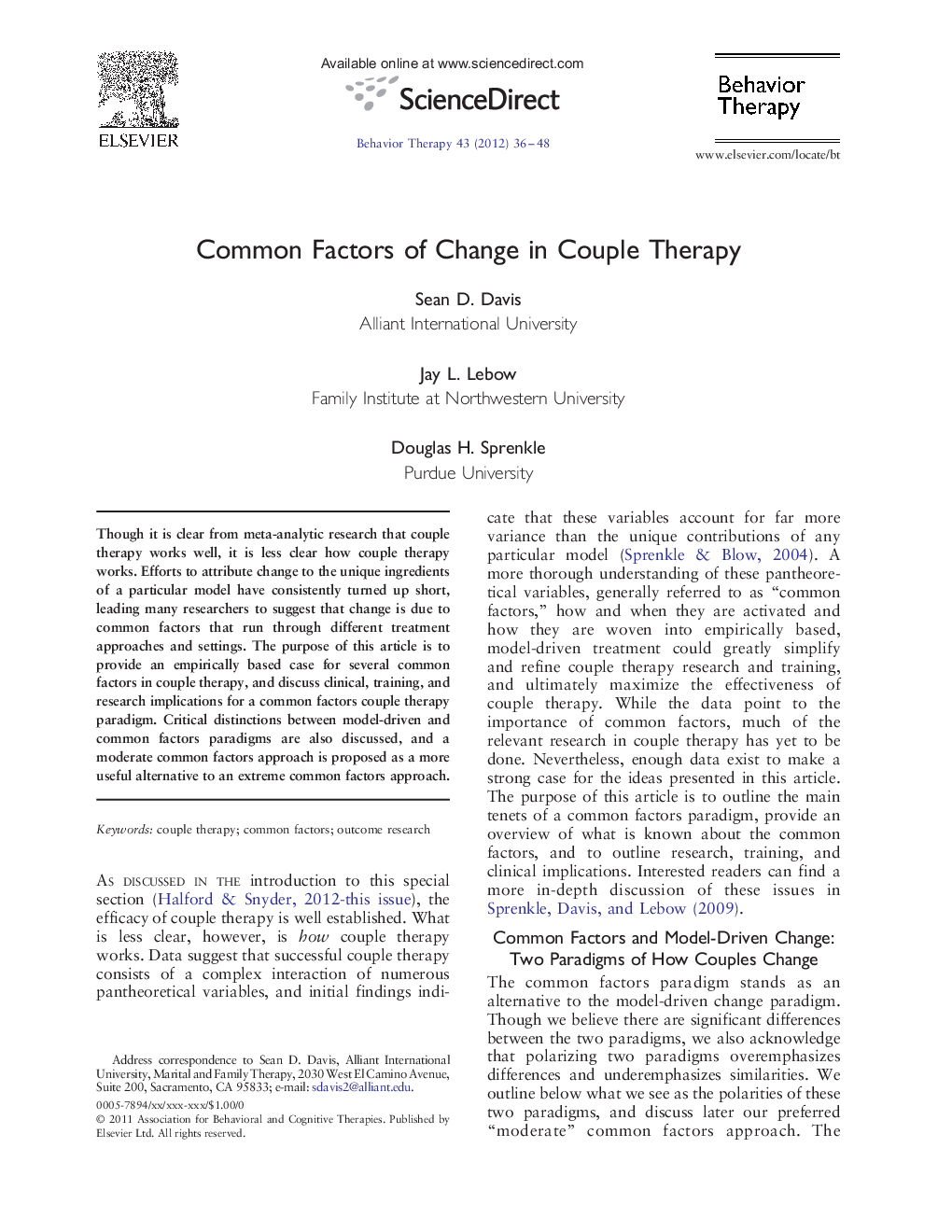| Article ID | Journal | Published Year | Pages | File Type |
|---|---|---|---|---|
| 901490 | Behavior Therapy | 2012 | 13 Pages |
Though it is clear from meta-analytic research that couple therapy works well, it is less clear how couple therapy works. Efforts to attribute change to the unique ingredients of a particular model have consistently turned up short, leading many researchers to suggest that change is due to common factors that run through different treatment approaches and settings. The purpose of this article is to provide an empirically based case for several common factors in couple therapy, and discuss clinical, training, and research implications for a common factors couple therapy paradigm. Critical distinctions between model-driven and common factors paradigms are also discussed, and a moderate common factors approach is proposed as a more useful alternative to an extreme common factors approach.
► Most change in couple therapy is attributable to factors shared among models. ► The most salient common factors in couple therapy are outlined and discussed. ► The research implications of a common factors paradigm are discussed.
